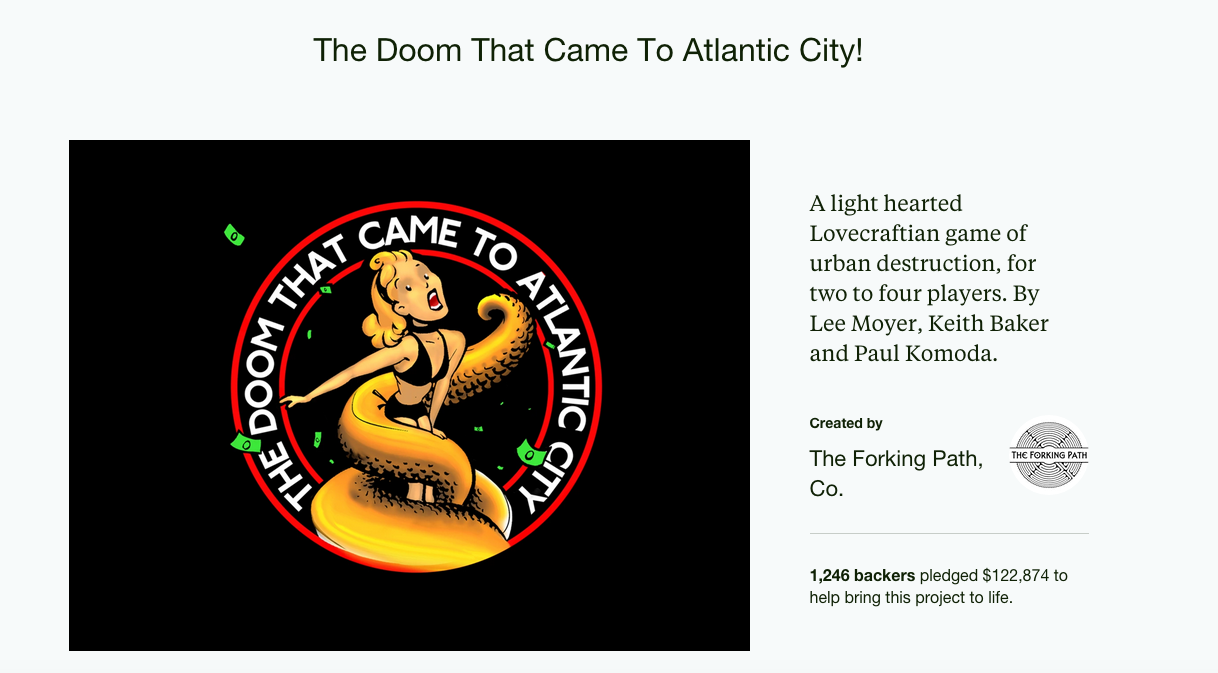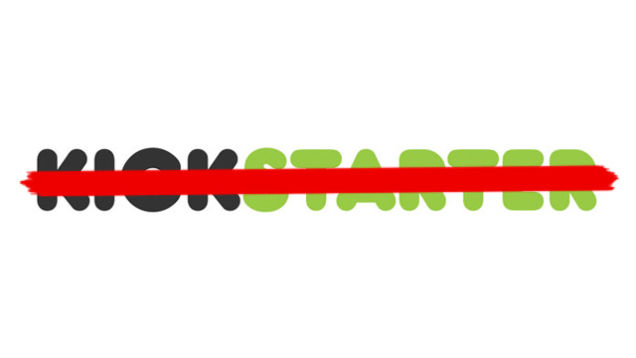For the first time, the FTC has laid the smackdown on the proprietor of a Kickstarter that failed to deliver on its promises. It’s about goddamn time — but it’s not exactly good news for the backers who, three years later, are still out some cash.
Erik Chevalier settled with the FTC over a complaint concerning his Kickstarter project for a Lovecraftian board game called the The Doom That Came to Atlantic City. The Kickstarter campaign to create the game launched in May 2012 and raised $US122,874 from 1246 backers, way more than the $US35,000 Chevalier said he needed to make the game.

On the surface, the campaign seemed reasonable and attainable. It’s a board game after all, not an absurd or impossible new technology that needed to be developed from scratch. Still, Chevalier cruised by the October 2012 original delivery deadlines, providing updates to his backers as if he was going to deliver, until ultimately, Chevalier canceled the project and promised his backers refunds.
The refunds never came. And the FTC contends that instead, Chevalier blew the cash “on unrelated personal expenses such as rent, moving himself to Oregon, personal equipment, and licenses for a different project.”
Chevalier settled with the FTC for $US111,793.71 — less money than he raised — but he won’t pay a cent. According to the FTC, the judgement “will be suspended due to Chevalier’s inability to pay.”
The moral of the story, then, appears to be that if you raise an truckload of cash from a Kickstarter scam but then spend it all before the government catches up to you, you’ll get away scot-free. (As commenters point out, he’s unemployed so there are no wages to garner.)
” Kickstarter creators have an incredible track record when it comes to following through on their promises,” the company said in a statement. “But creators who abuse our system and backers’ trust expose themselves to legal action.” The company didn’t specify what constitutes an incredible track record.
In conjunction with today’s announcement, the FTC released some completely obvious guidance to businesses who want to get in the crowdfunding game:
- Keep your promises when crowdfunding. If you promise rewards, give them. If you promise refunds, provide them.
- Use the money raised from crowdfunding only for the purpose represented. If you collect money for a specified project, like creating a board game, use the money only for that purpose. Don’t use it for personal purposes or to start another project.
Seriously?
It is a good thing that the government is finally trying to do something about the ludicrous number of Kickstarter scams and outright failures that leave unwitting people hanging. But between the flaccid action on today’s settlement and the futile guidance, I’m not real optimistic that we’re making any progress towards common sense regulation of crowdfunding. Proceed with caution. Don’t give these knuckleheads your money.
Got info about a scammy crowdfunding project? We want to know more.
